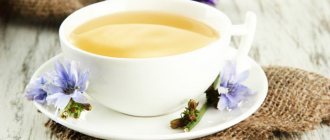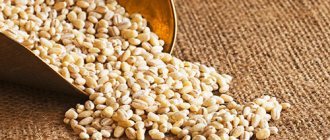Many people have problems with lactation. This worries the mother and deprives the baby of the most natural and beneficial nutrition for him. Tea with milk during breastfeeding can help continue breastfeeding almost as long as the woman herself wants. But which of the many to choose so that it has the desired effect and does not harm the child?
About the benefits of green tea
The biochemical composition of the product is represented by vitamins (A, B1, B2, C, PP), macroelements (potassium, calcium, magnesium, phosphorus), microelements (iron, fluorine).
The caffeine in green tea is milder than coffee, but its presence should be taken into account during breastfeeding. Contained polyphenols prevent the formation of blood clots. Beneficial properties of green tea:
- slowing down the aging process, prolonging life;
- prevention of cardiovascular and cancer diseases;
- promotes fat burning;
- increases endurance and performance;
- improves brain function, relieves stress;
- lowers blood pressure;
- regulates blood sugar levels, increases insulin activity and glucose metabolism;
- has a general strengthening, anti-inflammatory, antiviral effect;
- protects the liver from the negative effects of toxic drugs and alcohol;
- eliminates bad breath, strengthens tooth enamel and bones;
- increases immunity;
- removes salts of heavy metals, reduces the negative effects of radiation from computer screens;
- prevents the formation of cholesterol plaques;
- diuretic effect reduces swelling.
On a note! The content of catechins in green tea is much higher than in black tea. These substances are antioxidants and are not synthesized in the body, so they must be supplied with food.
The benefits and harms of tea during breastfeeding
Russia is one of the top five countries in terms of tea consumption per capita. The average resident drinks up to one and a half kilograms of this product per year. Tea began to gain popularity in Russia in the 17th century. Despite the fact that throughout the world preference is given to green tea (87%), Russians drink more black tea.
Tea composition
Both types are obtained from the same plant - the tea bush. It is believed that the tea bush began to be used as a medicine in China about two thousand years ago. In the fifth century, the leaves of the plant began to be used to make a drink for everyday use. One of the stages of tea production is the enzymatic oxidation of the leaves before their final drying. Green tea is obtained by short-term oxidation of the semi-finished product (no more than two days). To obtain black tea, this process is maintained for two to four weeks.
The most widespread types of tea in the world are green and black.
The finished drink contains more than a thousand biologically active substances. Their concentration depends both on the degree of processing of the leaves and on the plant variety. Since green tea is obtained as a result of less processing of the raw materials, it is believed that more beneficial substances are retained in it. The main ones are the following:
- tannins;
- essential oils;
- alkaloids;
- amino acids;
- pigments;
- vitamins.
One of the most famous alkaloids and the main component of tea is caffeine or, as it is also called, theine. It is theine that gives this drink its tonic properties. First of all, the functioning of the brain improves. Tea leaves contain even more caffeine than coffee. And there is a little more in green than in black. But a cup of tea contains less caffeine than a cup of coffee due to the smaller amount of product being brewed. Also, a cup of green tea with standard brewing contains less theine than a cup of black tea. The effect of theine is compensated by the presence of a tannin such as tannin. The latter softens the effect of tea on the human cardiovascular and nervous systems. It is tannin that gives the drink its main taste.
Tannins such as catechins are strong antioxidants and prevent the formation of cancer cells. There are more catechins in black tea. All types of this drink also contain the following vitamins:
- carotene, which improves vision and the condition of mucous membranes;
- thiamine (B1), which takes part in regulating the functioning of the endocrine glands;
- riboflavin (B2), which normalizes liver activity;
- folic acid (B9), which relieves irritability and prevents the formation of blood clots;
- nicotinic acid (PP) – anti-allergenic vitamin;
- vitamin P, which enhances the effectiveness of vitamin C.
A cup of tea contains less caffeine than a cup of coffee
Beneficial effects of tea
Thanks to its rich range of beneficial substances, tea, when used correctly, has a beneficial effect on the health and well-being of a nursing mother. After childbirth, women often experience chronic fatigue and their immunity decreases. Therefore, regular consumption of tea can provide the following benefits:
- energy increases and performance is restored;
- concentration of attention increases;
- mood improves;
- the functioning of the digestive tract is normalized;
- the development of urolithiasis is prevented;
- the growth and reproduction of pathogenic bacteria in internal organs is inhibited;
- metabolism increases and hematopoietic processes are normalized;
- Vascular spasms are relieved and headaches are relieved.
Green tea is effective for atherosclerosis and high blood pressure. Black tea, on the contrary, increases blood pressure.
Possible harm of tea during lactation
When breastfeeding, excessive consumption of this tonic drink (more than three cups per day) can cause insomnia, overexcitement and irritability in both mother and baby. You should also be wary of inexpensive or bagged teas, which are often found to contain toxic heavy metals. When drinking the drink regularly, one should take into account its ability to impair the absorption of iron. For example, if you drink tea with every meal of meat, the condition of your skin and hair may worsen, fatigue may appear, and iron deficiency anemia may develop.
Cons and contraindications
Excessive consumption of this drink while breastfeeding will lead to side effects in the mother or baby. Failure of a nursing woman to comply with the recommended dosages will cause signs of intoxication of the body, headaches, dizziness, and insomnia. Excess polyphenols will cause the formation of kidney and gallstones, and excess purines will cause gout.
Contraindications:
- individual intolerance, allergies;
- increased body temperature;
- low or very high blood pressure;
- urolithiasis or cholelithiasis;
- glaucoma;
- nervous excitability;
- heart attack;
- acute form of gastritis, ulcers, erosion of the stomach and duodenum;
- kidney disease;
- Iron-deficiency anemia;
- taking caffeine-containing medications;
- elderly age.
On a note! You should not drink stale tea, as it contains a high concentration of purines, which cause aggravation in hypertensive patients, patients with glaucoma and gout.
Is it possible to drink green tea while breastfeeding?
Often there is a contraindication for drinking the drink - lactation period. This is due to the high activity of nutrients, a strong effect on the human body. Whether it is possible to drink green tea while breastfeeding will be advised by your pediatrician in each specific case. The correct preparation technology allows you to include the product in the diet of a nursing woman. Infants may have contraindications, so it is advisable to consult a specialist.
On a note! When breastfeeding, you are allowed to drink only a warm, freshly brewed drink of low concentration, prepared using a special technology from high-quality raw materials.
Effect on lactation
Green tea does not contain substances that can suppress or enhance breast milk production. Like any other warm drink, it helps to dilate the ducts of the mammary glands, making it easier for the baby to suckle. The drink quenches thirst well and provides the body with the fluid necessary for breastfeeding. There are many recipes for lactation teas with green tea, which have a soothing and restorative effect.
Does it affect the child?
Consumption during breastfeeding may negatively affect the condition of the baby. If the baby does not have an individual intolerance to the product, then the reason for the negative reaction to tea is that the nursing mother violated general recommendations or the method of preparation.
The child may experience increased nervous excitability, causeless crying, and problems falling asleep and staying asleep. Sometimes there is a digestive disorder, manifested by colic, bloating, diarrhea, and frequent regurgitation. If you notice a negative effect on your baby, you should exclude tea from your diet for a month. If the problem was caused by improper use, then gradually add it to the menu, observing the child’s reaction.
Green tea may make your child nervous
What tea can you drink while breastfeeding?
After all, now the mother will not have tea alone, sharing this pleasure with her nursing baby.
Drinking plenty of warm water is one of the main recommendations of doctors for all women who have embarked on the path of natural breastfeeding.
Experts in the field of breastfeeding are unanimous in their opinion that a moderate amount of tea drinks in the diet of a nursing mother cannot cause serious harm to either herself or the baby.
Moreover, they are useful as a natural energy booster and antioxidant. However, there is a difference between black, green and white varieties of tea, which is extremely important to understand when organizing breastfeeding.
All varieties of the drink contain a large amount of theine, which is similar in properties to caffeine. In dried leaves, this substance is bound due to the presence of tea tannin and theophylline, so tea is less harmful to a nursing mother than coffee.
During lactation, herbal teas should be considered from the point of view of homeopathy and be sure to consult a doctor before taking them. This precaution is due to the fact that various fees can have both an overly stimulating and depressing effect on milk production and on a woman’s health in general.
Myths about green tea
Interesting product notes are quite common. Sometimes they are doubtful or contradict each other.
Common myths:
- Has a calming and invigorating effect. Both statements are true and depend on the brewing time. Infuse for 2 minutes. tea gives a stimulating effect, 5 min. - calming. If you brew for longer than 6 minutes, the drink will lose most of the essential oils and a lot of beneficial properties.
- Green tea should be drunk after meals. It is not possible, because it will not bring any benefit, it will dilute the gastric juice. It is advisable to drink tea between meals or after a break of 30-40 minutes.
- General availability of quality products. The cheap goods presented on store shelves have nothing to do with real tea. High competition and a large number of counterfeits lead to the fact that importing a quality product becomes unprofitable, so it is difficult to buy.
- Brewed tea can be stored for a day. When breastfeeding, it is especially important to ensure that you only drink freshly brewed drinks. Beneficial properties are retained for the first 15 minutes; long-term storage causes an increase in the concentration of harmful substances.
- Green and black tea are different plants. No, both varieties are collected from the same bush. The difference lies in the absence or presence of fermentation.
- Tea diluted with milk improves lactation. This is a myth; the drink will not affect the amount of milk produced by a woman during lactation. A warm drink will only cause it to rush to the mammary gland.
Recommendations from Dr. Komarovsky
Creating a breastfeeding diet is not difficult. Evgeny Olegovich Komarovsky, who has earned authority with his professional and practical advice, formulated the basic rules for preparing a diet:
- Put aside gastronomic experiments. Unfamiliar foods, as well as citrus fruits, chocolate, coffee and red berries can cause allergies in a child.
- Milk absorbs the smell and taste of food - avoid very salty, sour, spicy and strong-smelling foods.
- Milk that is too fatty is difficult for a child to suck and digest—reduce the amount of animal fat.
Dr. Komarovsky believes that there is no need to increase the volume of fluid if lactation is sufficient. When there is not enough milk, it makes sense to activate its secretion by drinking about 300 ml of a warm drink after each feeding:
- Sweet tea with milk
- Dried fruits compote
- Natural juices
- Boiled milk and fermented milk products
The myth that tea with milk affects lactation is only half true. The drink will not increase the amount of milk, but will enhance its flow. It will be easier for the baby to “get” milk from the breast and he will eat more.
How to brew and drink correctly during breastfeeding?
Packaged products are extremely undesirable during breastfeeding. During this period, you need to choose high-quality loose leaf tea. You can use any container for brewing except iron, because it deteriorates the taste and reduces the concentration of nutrients. The optimal water temperature is 80°C, do not pour boiling water. For a mug with a volume of 200-270 ml you can put ¼-½ tsp. tea leaves Leave for no more than 2-5 minutes, drink warm.
The neonatal period is a contraindication for drinking green tea while breastfeeding. You can try it for the first time 1-1.5 months after birth in an amount of 50 ml. Increase the volume gradually, observing the condition of the baby. The maximum amount per day is 2 cups (up to 600 ml). Daily consumption is undesirable; it is allowed only when the child grows up and provided there are no negative reactions.
The maximum amount of caffeine and other active substances in breast milk is observed an hour after drinking tea. It is not recommended to feed the baby at this time. Drinking tea is allowed in the first half of the day, but not on an empty stomach. Drinking tea in the evening can cause insomnia in the mother and sleep disturbances in the child.
On a note! After 3-4 months, you can try adding natural raspberries, jasmine, honey to the drink, if the baby is not allergic to them.
Reducing caffeine content
The alkaloid causes a disorder of the nervous system, disruption of the baby’s digestive tract, so the beneficial properties are not considered, and intake from food is reduced as much as possible. You can reduce the amount of caffeine that is harmful during natural feeding by draining the water after 1 minute. after the start of brewing. The tea leaves must be filled again with clean hot water and continued to infuse. With this trick, the content of the substance in the finished drink will remain insignificant and will not cause negative reactions in the baby.
Milkweed during pregnancy
Pregnancy is a period of life, which, on the one hand, represents a pleasant expectation, and on the other, is accompanied by serious experiences. Of course, when thinking about the question of whether to drink milk tea, a pregnant woman worries about the health and well-being of her baby.
So, let's look at the benefits of drinking milk tea during pregnancy:
- The body of mother and baby is saturated with many vitamins and microelements that are so necessary during this period of life.
- Many women note that tea with milk can soften the manifestations of toxicosis . In addition, unfortunately, in some women, toxicosis is so severe that they cannot eat anything at all, and tea with milk in this case is an excellent source of all the essentials in one cup.
- Tea with milk has a slight calming effect. We all know that pregnancy is often accompanied by mood swings and various experiences. Tea with milk will also help you calm down.
However, the drink also has its drawbacks :
- Tea contains caffeine, which may be harmful to your baby . Milk, of course, cannot be contraindicated for pregnant women, but tea should be consumed in very limited quantities. Therefore, be sure to add only a small amount of tea to the milk. Do not drink more than one to two cups of drink per day.
- Diuretic effect of milkweed . Many pregnant women experience a constant urge to urinate, and milk tea can make them need to go to the restroom more often.
- Excessive consumption of milk tea can affect the health of mother and baby. Please use caution and always contact your doctor if you have any questions or concerns.
Today, many people drink coffee in the morning to cheer themselves up before starting a new day. But can nursing mothers have coffee? In this article we will fully examine this issue.
Do you know that with the help of linden tea you can solve many women's problems and diseases? We bring to your attention an article about the therapeutic effect of linden for women during pregnancy and breastfeeding, as well as for children: https://chay-i-kofe.com/chay/vidy/travyanoy/s-lp/poleznyie-svoystva-chaya-s -lipoy-dlya-zhenshhin-pri-beremennosti-i-grudnom-vskarmlivanii/
Green tea with milk for nursing mothers
This option can be used during breastfeeding if the baby is not allergic to both components. Tea with milk causes a feeling of fullness, which is useful if you want to lose weight and there is no opportunity to have a snack. The additive enriches the drink with calcium and complete protein. In this case, some of the beneficial properties are lost due to the reaction between the active substances of both ingredients.
On a note! The caffeine content will decrease only if you replace part of the brew with milk. If the serving volume increases due to it, the concentration of the alkaloid will remain the same.
During lactation, it is especially important to follow the recommendations for preparing milk tea. Milk should be fresh, boiled, with a fat content of 1-3.2%. Must be consumed warm. The benefits of the drink outweigh the side effects, but you don’t need to drink it by force.
Linden blossom tea
Linden flowers perfectly eliminate inflammation, increase immunity and contain many useful substances. This tea is completely devoid of caffeine and tannin, which can have a stimulating effect on a child.
Linden tea with milk is useful in all respects:
- Activates lactation even when drinking one cup of tea every other day. It is recommended to drink a linden drink if your milk supply decreases.
- It extremely rarely causes allergic reactions.
- Relieves baby's colic.
- It has its own aroma and taste - it can be consumed without sugar.
How to cook:
- Pour 300 ml of boiling water over a tablespoon of linden flowers.
- Leave for 20 minutes covered.
- Add boiled milk in a 1:1 ratio.
- Drink warm.
Green iced tea in bottles
Industrially produced products cannot be consumed during breastfeeding. It is made from low-quality raw materials with the addition of dyes, flavors, stabilizers, flavoring and aromatic additives. Such drinks can provoke an allergic reaction in the form of rash, itching, bronchospasm, and Quincke's edema. Possible digestive upset - regurgitation, colic, bloating, problems with stool. Manufacturers add ginseng and other stimulants to some products. When breastfeeding, they will cause sleep problems, causeless crying, and tearfulness.
How does an allergy to cow's milk manifest in a baby?
The main symptoms of this disease are atopy (redness of the cheeks, buttocks, forearms, dry skin on the legs and cheeks), as well as digestive problems: frequent and profuse regurgitation, foamy diarrhea, colic, constipation. An allergy is most likely indicated by loose stools with mucus, which may contain streaks of blood.
In such situations, you should definitely contact your pediatrician. If the doctor suspects an allergy to cow's milk protein, the nursing mother usually eliminates whole milk or, if necessary, all dairy products from her diet for 2-4 weeks. If the child’s condition improves, a provocative test is sometimes performed to make sure that the reaction was specifically to milk.
Where else is caffeine found?
Most of the side effects of green tea are attributed to this alkaloid. Please note that it is also contained in other products. Eating several foods that are sources of caffeine will increase the amount of the substance in breast milk. When breastfeeding, you should know these components and distribute them over different days.
Caffeine is present in:
- coffee;
- tea;
- chocolate;
- cocoa;
- mate;
- guarana;
- coca cola;
- energy products;
- chocolate confectionery.
During breastfeeding, drinking green tea is allowed if there are no contraindications for mother and baby. You must follow the cooking recommendations and do not exceed the permissible quantity. If negative reactions occur in your baby, you should avoid the product for a while.
Effect of black tea
Black teas contain about 20% tannin, which is a storehouse of vitamin P and a vascular strengthener.
The theine concentration ranges from 20-30%.
The stimulating effect of this substance is 2 times less than that of caffeine, but can last several times longer. Therefore, it is not recommended to indulge yourself with tea gatherings before bed.
In addition to tannin and thein, the composition of black tea includes fluoride. This substance can destroy the calcium present in the body, which is especially dangerous during the period of calcium deficiency during lactation. Excessive consumption of fluoride-containing drinks can lead to dental disease and skeletal fragility in the mother. In this case, the quality of breast milk will be the last to deteriorate, but if calcium deficiency in the mother’s body reaches a critical level, the baby may also suffer.
Reducing the brewing time to 3-5 minutes will help reduce the fluoride content in a cup of black tea.
Low quality black tea may contain heavy metals. This fact was established by Canadian scientists in 2013. Then the results of laboratory tests recorded the presence of aluminum, cadmium, lead and even arsenic in samples of low-price packaged tea. At the same time, samples of products from the middle and higher price segments did not give such results. The conclusion is simple: you should not drink cheap black tea bags at all, neither during breastfeeding nor after breastfeeding.
Strongly brewed black tea is a strong diuretic, so it is strictly not recommended to rely on your favorite drink if you are thirsty.
This same property can negate the effects of mild-spectrum antipyretics, and these are the drugs that are recommended for use by nursing mothers.
Immediately after childbirth, many young mothers suffer from iron deficiency anemia. If there is a history of such a disease, drinking black tea should be stopped until metabolic processes in the body are completely normalized. Dark varieties of tea partially block the absorption of iron, seriously disrupting both therapeutic diets and the intake of specialized Fe and Fe+ preparations.











